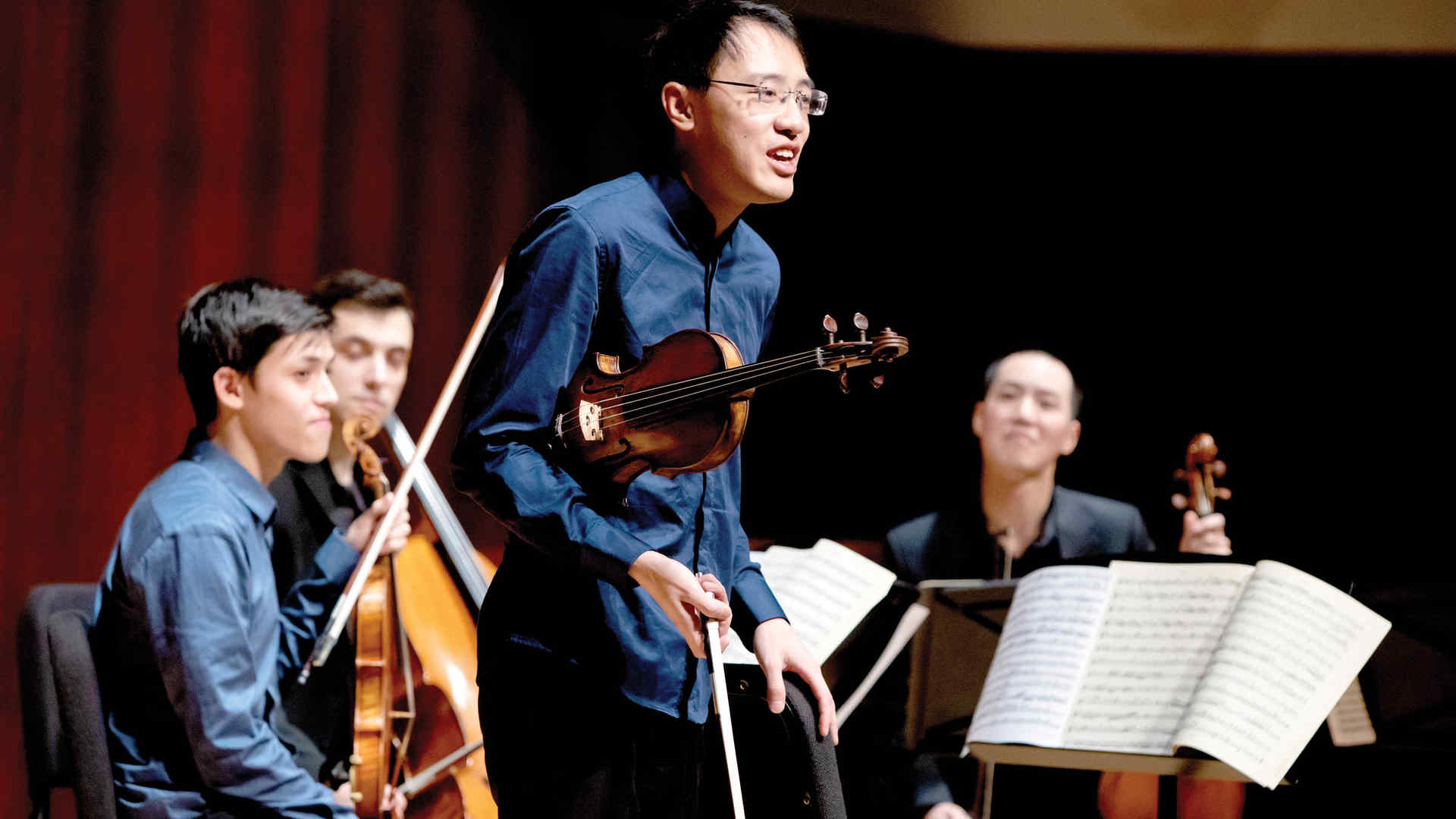
Recently, I was asked what challenges young artists face today. This became a frustrating exercise because there seemed to be so many potential obstacles to discuss. On one hand, there are statistics and stereotypes that linger around our perception of the concert industry. These developments include certain orchestras failing to balance their budgets, average audiences getting older, and musicians being severely underpaid for the emotional and physical investments into their craft. On the other hand, there are systemic problems where the values of the art form and certain practicalities seem to be at odds; increasingly, accessing and owning a suitable instrument is unaffordable.
The tools needed for this craft, including the purchase of manuscripts, scores, and strings as well as instrument maintenance, often must be prioritized before we, young musicians, consider other financial practicalities, like paying off student debt and paying high rent, health care, and travel expenses in cities that ought to provide the greatest artistic opportunities. All that before considering the burdens that may come with starting a family in the near future. These issues seem to concern a life outside of school, not so different from the topics that dominate national political conversation today.
What, then, are our responsibilities as artists? This is a question that has increasingly occupied me, particularly since taking former president Joseph Polisi’s course, in which he advocated for the idea of artist as citizen. As this September marked my fifth consecutive year of studying here at Juilliard—and 20 years since I first stepped into this building as a Pre-College student—I am still coming to terms with this vision. The influence of our performances on issues like the challenges young artists face today is generally quite small. One perverse example: playing Bach has little to do with informing national defense policy. However, the rising hoopla about this country’s upcoming presidential elections has left me with two impressions that seem related to what we strive for in our artistry at this school. First, visual impressions of how one carries stage energy influence how the quality of performance is perceived; and second, the context in which we perform matters.
Perhaps these are ideas that my peers at this school have already realized, but to me, they reveal that truth comes with clarity and perspective. As our lives are governed by simple decisions, our artistry is no different and requires us to make artistic decisions that are honest and sincere, and at least for the musicians, there can be no better guiding forces than the deep and clear understanding of the score and the recalibrating guidance from our teachers and peers.
Last year, my colleague and friend Alice Ivy-Pemberton (BM ’19, violin) commissioned music that brought perspective to the effects of climate change on our communities through visual art collaboration. A community service seminar has inspired similar activism, including a group called 1.5 Degrees that launched Juilliard into an urgently needed campaign to reduce our harmful impact on the planet we share. I find that it is this spirit at Juilliard that has inspired me the most. Cultivating perspective should be at the heart of our striving for better artistry and facing whatever challenges come our way.
Max Tan (Pre-College ’11; MM ’17, Artist Diploma ’19, violin), who holds a Celia Ascher Doctoral Fellowship, received his bachelor’s degree at Harvard